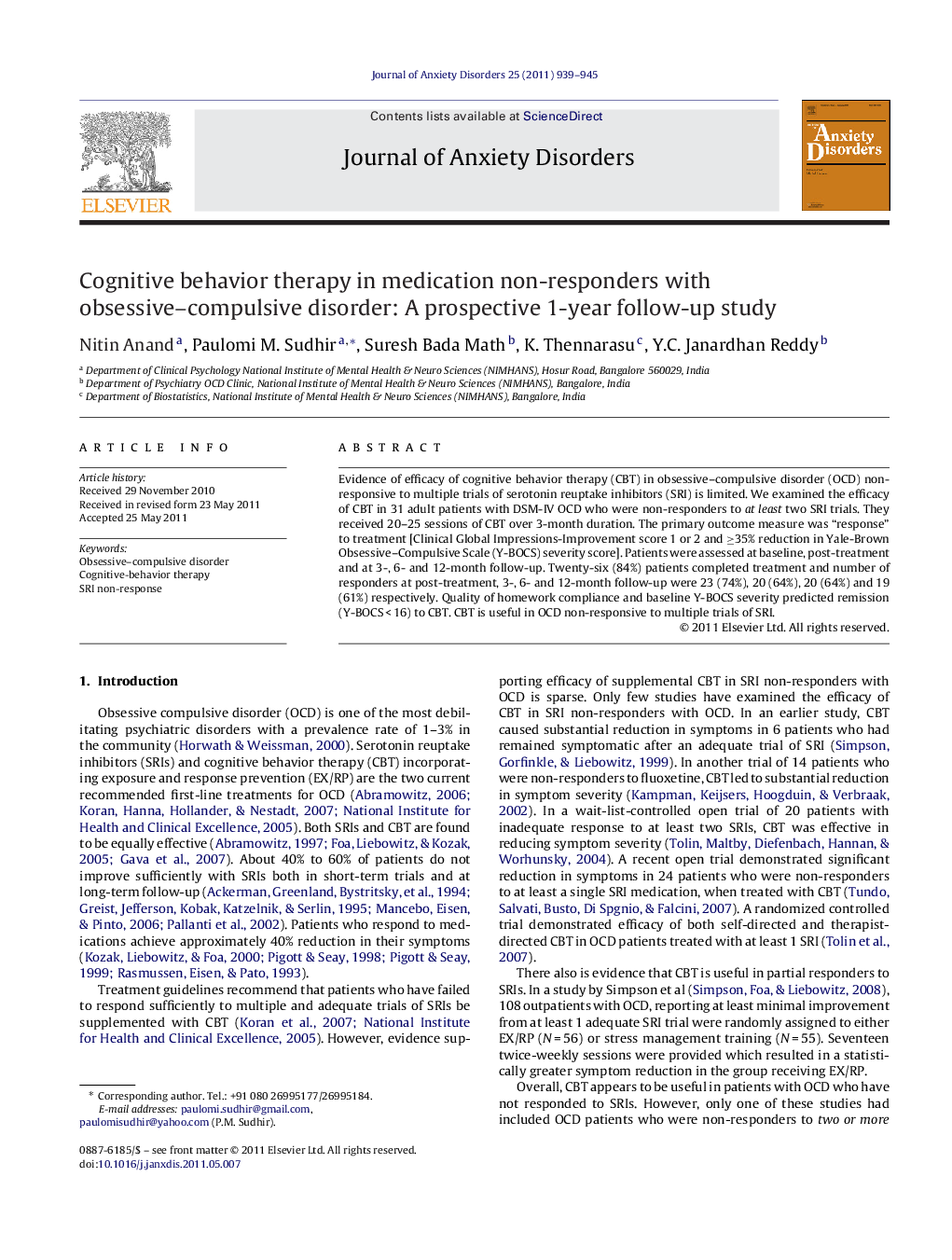| Article ID | Journal | Published Year | Pages | File Type |
|---|---|---|---|---|
| 909613 | Journal of Anxiety Disorders | 2011 | 7 Pages |
Evidence of efficacy of cognitive behavior therapy (CBT) in obsessive–compulsive disorder (OCD) non-responsive to multiple trials of serotonin reuptake inhibitors (SRI) is limited. We examined the efficacy of CBT in 31 adult patients with DSM-IV OCD who were non-responders to at least two SRI trials. They received 20–25 sessions of CBT over 3-month duration. The primary outcome measure was “response” to treatment [Clinical Global Impressions-Improvement score 1 or 2 and ≥35% reduction in Yale-Brown Obsessive–Compulsive Scale (Y-BOCS) severity score]. Patients were assessed at baseline, post-treatment and at 3-, 6- and 12-month follow-up. Twenty-six (84%) patients completed treatment and number of responders at post-treatment, 3-, 6- and 12-month follow-up were 23 (74%), 20 (64%), 20 (64%) and 19 (61%) respectively. Quality of homework compliance and baseline Y-BOCS severity predicted remission (Y-BOCS < 16) to CBT. CBT is useful in OCD non-responsive to multiple trials of SRI.
► Efficacy of CBT in OCD non-responsive to multiple SRIs is not well studied. ► CBT was efficacious in patients non-responsive to multiple SRIs and augmenting drugs. ► CBT had enduring effects with 61% maintaining response at 1-year follow-up. ► Compliance to treatment and less severe illness predicted remission to CBT. ► Predictors of response to CBT need to be studied further in larger controlled trials.
